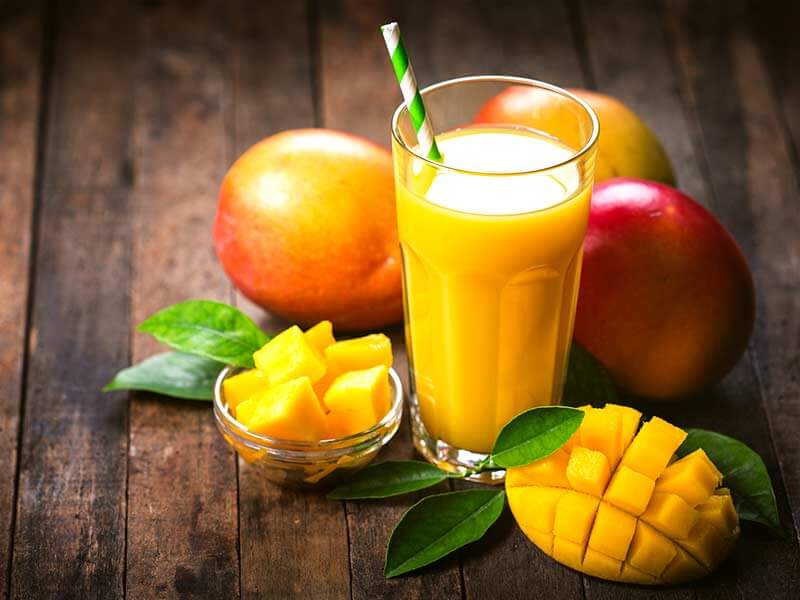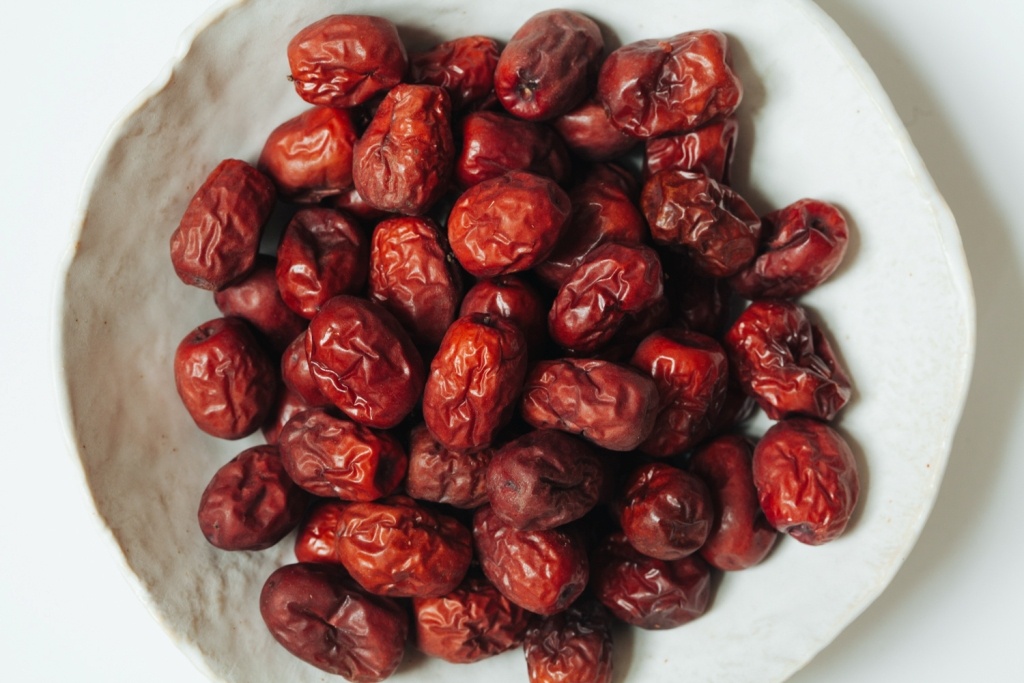Mango juice improves overall health, promotes skin health, digestion and brain functioning, boosts immunity, improves eyesight and blood circulation, protects blood circulation and against anaemia.
Mango juice is not only delicious but also highly nutritious for everyone, including your child. Check out below its remarkable health benefits, mouth-watering recipes and nutritional facts along with its few side effects.
In this article:
11 Amazing Benefits of Mango Juice in Your Child’s Diet
Recipes
Nutritional Facts
Side Effects
Word of Caution
11 Amazing Benefits of Mango Juice in Your Child’s Diet
Here are the 11 impressive mango juice benefits:
Improves Overall Health
Mangoes are powerhouses of vitamins, including vitamin A, B-vitamins, vitamin C, vitamin K and vitamin E. They keep away several diseases that occur due to their deficiency. Mangoes also contain strong antioxidants that help neutralize free radicals in the body and prevent cancer and heart diseases.
Promotes Digestion
Mangoes, rich in digestive enzymes and fibres, help children with an easy bowel movement. It reduces acidity in their digestive tract and risk of constipation and, improves the breakdown of proteins.
Boosts Immunity
Vitamins C and A (mainly) and an antioxidant, beta-carotene in mangoes help boost immunity. Mangoes also help promote the epithelial function of the body to keep away germs.
Improves Eyesight
Vitamin A in mangoes promotes eyesight. Mangoes also help in maintaining healthy eyes and avoid night blindness, dryness, refractive errors and itching. One serving of mango juice can look after 1/4th Vitamin A requirements of your child.
Promotes Brain Functioning
The presence of glutamine acid (an amino acid) and Vitamin B6 in mangoes promotes brain development and functioning and, better memory in children.
Improves Blood Circulation
Mangoes are rich in potassium and minerals which help in improving blood flow. They help strengthen the outer skin cells and regulate their blood levels.
Promotes Skin Health
Vitamin A in mango juice also protects your child’s skin, maintaining its softness and glow. Applying mango pulp to the skin also improves moisturization and complexion.
Avoids Cancer
Mangoes are high in pectin, the dietary fibre which minimizes the risk of cancer in your child related to his gastrointestinal tracts.
Protects Against Anaemia
A mango provides about 0.5 mg iron that is required to produce red blood cells. Thus, it prevents your kid against anaemia.
Promotes Blood Circulation
Mangoes are rich in potassium and minerals which help in improving blood flow. They help strengthen the outer skin cells and regulate their blood levels.
Shields Against Sunstrokes
Mango juice helps your child remain hydrated and maintain electrolytes in his body. It prevents him from getting dehydrated or sunstrokes in the scorching summer heat.
Recipes
Preparing Simple Mango Juice
- Wash, peel and chop 2 fresh mangoes into cubes.
- Add the mango, 1 cup of filtered water, 1tsp of honey and some ice cubes in a blender.
- Blend for about 3 minutes until smooth.
- Strain the puree through a cheesecloth or sieve into a container or jar.
- Extract the pure juice by squeezing or pressing the remaining fibres.
- Stir the juice well, discarding the mango pulp. Dilute it further by adding more water.
- Drop 2-3 ice cubes to serve chilled. Enjoy!
Preparing Mango Tango
- Add mashed mango (½ cup), ½ ripe mashed banana and 1 ripe mashed peach in a bowl and mix well.
- Add a little water if your child likes a thinner consistency. Mash together again.
- Serve with or without cereal.
Preparing Mango Shake
- Mix 1 finely chopped fresh mango, 1 glass of milk and 1tbsp sugar thoroughly in a blender until you get a complete liquid.
- Serve chilled with some ice cubes.
Preparing Mango-Strawberry Smoothie
- Add chopped mangoes (½ cup), ½ avocado flesh and 5 strawberries in a blender.
- Blend thoroughly to get a smooth puree. Serve.
Nutritional Facts
One serving of mango juice contains:
- 128 calories
- 33g carbohydrate
- Below 1g each of cholesterol, fat and protein
- 8g fibre
- 61g potassium
- 13g sodium
- 43g calcium
- 5g phosphorus
- 8g magnesium
- 9g iron
- 1mcg selenium
Mango juice also contains 25.5% RDA of 765 IU Vitamin A, 46% RDA of 27.7mg Vitamin C and traces of vitamins K, E and B.
Side Effects
Allergies
Children may rarely develop mango allergy which usually appears on their skin as rashes around their mouth or bottom, resembling the rashes of poison ivy. It’s caused by sensitivity to the mango sap or skin. Allergies mostly occur due to the contact of the oleoresin in the skin with the pulp that is consumed. Pediatricians suggest that you should not feed your baby any tropical fruit before at least 8 months of their birth. If you have a family history of mango allergy, consult your paediatrician regarding feeding your child mango juice.
Raises Blood Sugar Levels
Mango juice contains plenty of natural sugar. Though it’s better than processed sugars, drinking too much mango juice can hike up blood sugar levels, causing your child to gain a lot of weight and fats and, develop the risk of diabetes in future.
Stomach Problems
Too much intake of mango juice can cause stomach disorders. Your child may suffer from indigestion or diarrhoea due to mango fibres, or develop constipation in future.
Word of Caution
- Don’t feed mangoes to your baby if he’s not older than 6 months. It gets suited to babies who have already started on solids.
- Look for allergic reactions. On the first day, feed him only a tiny piece of mango and check for any allergies. Wait for a few more days before feeding him again. If mango allergy is a trait in your family history, avoid feeding him mango juice before consulting the paediatrician.
- Mash the mangoes carefully and properly before feeding the juice to your baby. Ensure to remove any visible fibres or solid clumps.
- Don’t go for the highly fibrous mango varieties. Fibres are difficult to swallow which pose choking hazards. Long fibres may even cause diarrhoea and indigestion.
- Ensure to feed only ripe mangoes to your baby. Sour unripe mangoes may lead to stomach upset in him, causing digestion problems.
Conclusion
Mango juice is undoubtedly highly beneficial for your child, keeping in mind its nutrition content and numerous health benefits. Only ensure that your child doesn’t have mango allergy and avoid feeding the juice in excess. One serving daily is enough to get all its benefits.
Reference Links
https://www.organicfacts.net/mango-juice.html
https://nutritionfacts.org/topics/mango/













